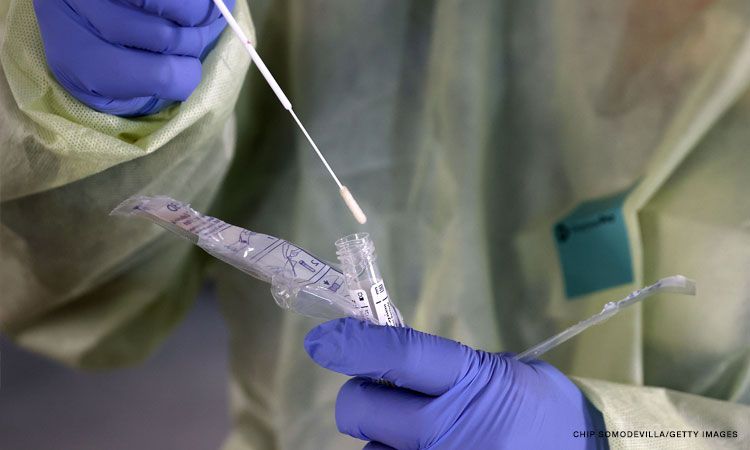 TRAVELERS entering the Philippines are now required to undergo a COVID-19 test five days after their arrival in the country.
TRAVELERS entering the Philippines are now required to undergo a COVID-19 test five days after their arrival in the country.
The new protocol adopted by the Inter-Agency Task Force for the Management of Emerging Infectious Diseases (IATF-EID) says travelers will take a reverse transcription-polymerase chain reaction (RT-PCR) test on the fifth day, instead of immediately after arriving.
“Arriving passengers, regardless of their origin, shall be required to undergo facility-based quarantine upon arrival. They shall undergo RT-PCR test on the fifth day from their date of arrival in the country, unless the passenger shows symptoms at an earlier date while on quarantine,” said Presidential Spokesperson Harry Roque on Wednesday, January 27.
Once the traveler tested negative, the person will be endorsed to the local government unit (LGU) of destination where he or she will continue the remainder of the 14-day quarantine under strict monitoring.
“Appropriate patient management shall be observed as outlined in the guidelines of the Philippine Society for Microbiology and Infectious Diseases and The Department of Health Omnibus Guidelines on Prevention, Detection, Isolation, Treatment and Reintegration Strategies for COVID-19,” said Roque.
Czech Republic included in PH travel ban
The Philippines has temporarily banned the entry of foreign travelers coming from countries where the new, more contagious variant of COVID-19 was detected.
On Tuesday, January 26, the government expanded the travel restrictions to bar travelers from the Czech Republic from entering the country starting Jan. 28 until Jan. 31. Those who have been there within 14 days immediately preceding arrival in the Philippines are likewise not to enter the Philippines.
Filipino nationals coming from, or who have been to the Czech Republic will be allowed to enter, provided that they undergo quarantine until the result of an RT-PCR test.
Czech Republic joined the list of countries under the travel ban, including the United Kingdom, Denmark, Ireland, Japan, Australia, Israel, the Netherlands, China, Hong Kong, Switzerland, France, Germany, Iceland, Italy, Lebanon, Singapore, Sweden, South Korea, South Africa, Canada, Spain, the United States, Portugal, India, Finland, Norway, Jordan, Brazil, Austria, Pakistan, Jamaica, Luxembourg, and Oman.
To date, there are 17 confirmed cases of the new COVID-19 variant in the Philippines.





